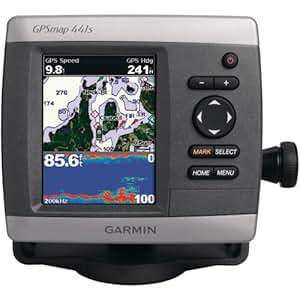Gone are the days when GPS navigators were clunky gas-guzzlers. Today’s devices are sleek, efficient, and increasingly focused on minimizing their environmental impact. While a GPS navigator itself doesn’t directly contribute to carbon emissions in the same way a car does, its features can significantly influence your driving habits and, consequently, your carbon footprint. Let’s delve into the surprisingly green features shaping the future of navigation.
Beyond the Map: Eco-Conscious Design and Manufacturing
Before even discussing the software features, it’s vital to acknowledge the increasing emphasis on sustainable manufacturing practices in the GPS navigation industry. Many leading brands are adopting eco-friendly materials in their device construction, opting for recycled plastics and minimizing the use of harmful substances. Look for certifications like RoHS (Restriction of Hazardous Substances) compliance, which indicates a reduced presence of toxic materials. Furthermore, energy-efficient components are becoming standard, leading to longer battery life and reducing the need for frequent replacements. This extends to the packaging as well, with a growing trend toward minimal, recyclable packaging to cut down on waste.
Software Features That Drive Green Choices
The true eco-friendliness of a modern GPS navigator lies within its software. Several features are specifically designed to promote fuel efficiency and reduce your overall environmental impact:
1. Eco-Routing: The Greenest Path
Eco-routing algorithms are changing the game. Unlike traditional route optimization, which often prioritizes speed, eco-routing takes into account factors like fuel consumption, elevation changes, and traffic congestion. It intelligently selects routes that minimize fuel usage, resulting in lower emissions. Some advanced systems even integrate real-time traffic data to dynamically adjust the route, avoiding unnecessary idling and stop-and-go driving.
2. Fuel Efficiency Monitoring and Reporting

Several GPS navigators now offer integrated fuel efficiency monitoring. By tracking your speed, acceleration, and braking patterns, these systems provide valuable feedback on your driving style. Regularly reviewing these reports can help identify areas for improvement and make conscious adjustments to your driving habits for better fuel economy. Some even go a step further, offering personalized tips and suggestions on how to optimize your driving for maximum efficiency.
3. Electric Vehicle (EV) Support

With the rise of electric vehicles, GPS navigators are adapting to support EV drivers. Many devices now offer specialized features such as range prediction based on battery level, charging station location identification and routing, and real-time updates on charger availability and charging times. This makes planning long journeys in an EV far simpler and eliminates range anxiety – a major hurdle to widespread EV adoption. Some even incorporate features to optimize routes based on charging station access and energy consumption to extend your EV’s range.
4. Public Transportation Integration

Reducing reliance on personal vehicles is a significant step toward eco-friendly transportation. Many GPS navigators seamlessly integrate with public transportation data, allowing you to plan routes that include bus, train, or subway options. This provides a convenient alternative for shorter journeys, reducing traffic congestion and minimizing your carbon footprint.
5. Carbon Footprint Calculation
Some advanced navigation systems can even estimate the carbon footprint of your journey, providing a quantifiable measure of your environmental impact. This feature can be very motivating, allowing you to see the direct results of choosing eco-friendly routes or transportation modes. This data empowers users to make informed decisions and strive for more sustainable travel choices.
Comparing Eco-Friendly Features Across Brands
The market offers a wide array of GPS navigators with varying degrees of eco-conscious features. When choosing a device, compare the specific functionality offered by different brands. Consider the sophistication of their eco-routing algorithms, the accuracy of fuel efficiency monitoring, and the extent of their EV support. Read reviews and check independent comparisons to see which navigators consistently perform well in terms of minimizing environmental impact.
Practical Advice for Eco-Conscious Navigation
Beyond selecting a feature-rich GPS navigator, remember that your driving habits play a crucial role in minimizing your environmental impact. Smooth acceleration and deceleration, maintaining a steady speed, and avoiding harsh braking are all simple yet effective techniques to improve fuel efficiency. Regular vehicle maintenance, including properly inflated tires, also contributes to reducing fuel consumption.
Conclusion: Navigating Towards a Greener Future

Modern GPS navigators are evolving beyond simple route guidance; they are becoming powerful tools for promoting sustainable transportation. By leveraging eco-conscious features and adopting fuel-efficient driving habits, you can significantly reduce your carbon footprint and contribute to a healthier planet. So next time you’re planning a journey, choose a navigator that aligns with your green values and embark on a more sustainable adventure.